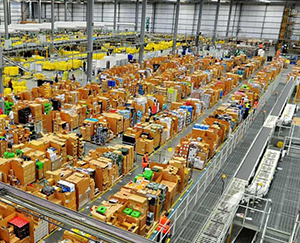
Joseph Stiglitz, he of former World Bankiness, haver of the 2001 Nobel Prize in economics who warned that globalization was taking place at the behest international conglomerates rather than “forces,” now comes to light his hair on fire present similar cautions about Artificial Intelligence:
“Artificial intelligence and robotisation have the potential to increase the productivity of the economy and, in principle, that could make everybody better off,” he says. “But only if they are well managed.”
…
Beyond the impact of AI on work, Stiglitz sees more insidious forces at play. Armed with AI, tech firms can extract meaning from the data we hand over when we search, buy and message our friends. It is used ostensibly to deliver a more personalised service. That is one perspective. Another is that our data is used against us.“These new tech giants are raising very deep issues about privacy and the ability to exploit ordinary people that were never present in earlier eras of monopoly power,” says Stiglitz. “Beforehand, you could raise the price. Now you can target particular individuals by exploiting their information.”
It is the potential for datasets to be combined that most worries Stiglitz. For example, retailers can now track customers via their smartphones as they move around stores and can gather data on what catches their eye and which displays they walk straight past.
The data farming of which we are all willing seeds know no boundaries, recognizes no politics and sees only profits. Shaded with the camouflage of complexity, it is a winning hand. Are we up for the ‘boring overwhelming’ of taking on the Tech giants? Wait, let me come in again…
Image: Warehouse operated by Amazon, via The Guardian
